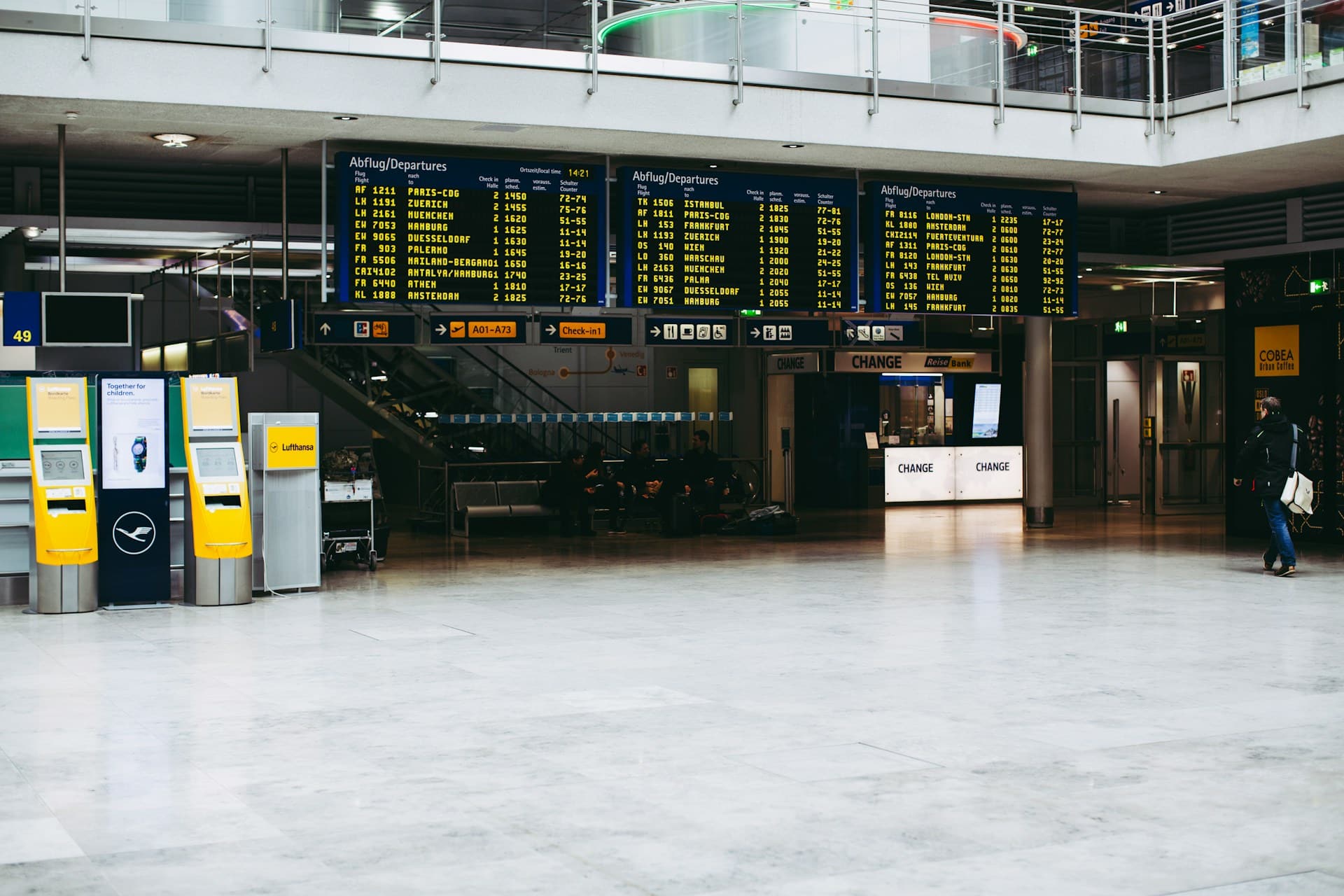How Are UK Airports Using AI for Enhanced Security Screening?

As the aviation industry continues to evolve, the integration of advanced technologies into airport security systems has become a significant trend. In the UK, airport security is undergoing a transformation, powered by artificial intelligence (AI). This article explores how AI is enhancing security screening processes, improving the passenger experience, and ensuring safer air travel.
Revolutionizing Airport Security with AI
Airports have always been at the forefront of technological advancements. However, artificial intelligence is now playing a pivotal role in security screening. UK airports are investing heavily in AI to enhance detection systems, streamline operations, and optimize the overall passenger experience.
A voir aussi : What Are the Challenges of Implementing AI in UK Healthcare Systems?
AI-driven detection systems are designed to identify potential threats quickly and accurately. Traditional methods relied heavily on human intervention, which could be prone to error. With AI, airports can now deploy real-time analytics to monitor passengers and baggage for any suspicious activity or prohibited items. This not only speeds up the screening process but also significantly increases the accuracy of threat detection.
One of the key players in this space is Pangiam, a company specializing in aviation security. Pangiam's AI-powered solutions are designed to integrate seamlessly with existing airport operations, providing enhanced security measures without disrupting the passenger flow. This ensures that passengers can move through security checkpoints swiftly and safely.
A voir aussi : What Are the Ethical Implications of AI in UK Healthcare?
Enhancing Passenger Experience Through Technology
Ensuring a smooth and swift journey through airport security is crucial for a positive passenger experience. AI technology is making it possible to achieve this by reducing waiting times and minimizing inconvenience.
Facial recognition technology is one such innovation that is transforming the international airport experience. By utilizing AI, airports can quickly and accurately verify passenger identities, reducing the need for manual checks and long queues. This not only speeds up the process but also enhances security by preventing identity fraud.
Project Dartmouth, a collaboration between Google Cloud and Smiths Detection, is another initiative aimed at revolutionizing airport security. This project leverages machine learning and cloud computing to develop advanced threat detection algorithms. These algorithms can analyze vast amounts of data in real time, ensuring that any potential threats are identified and addressed promptly.
Furthermore, AI-enabled scanners and screening systems can detect prohibited items hidden within baggage with greater accuracy than ever before. Traditional X-ray machines are being replaced by more advanced technologies like CTIX (computed tomography with AI). CTIX scanners provide detailed 3D images of the contents of baggage, allowing security personnel to identify threats more efficiently.
Cutting-Edge Technologies in Airport Security
The advent of machine learning and AI has led to the development of several cutting-edge technologies that are enhancing airport security. These innovations are designed to provide more accurate threat detection, streamline airport operations, and improve the overall safety of air travel.
One such technology is Scan CTIX. This AI-powered scanning system uses advanced imaging techniques to provide high-resolution, 3D images of baggage contents. By analyzing these images, the system can detect potential threats with remarkable accuracy. Scan CTIX is already being deployed in several UK airports, significantly enhancing their security capabilities.
Another notable innovation is the use of real-time data analytics. AI systems can process vast amounts of data from various sources, including surveillance cameras, passenger information, and baggage scans. This data is analyzed in real time to identify any unusual patterns or behaviors that may indicate a security threat. By leveraging Google Cloud's powerful computing capabilities, airports can ensure that their security measures are always up-to-date and effective.
Facial recognition technology is also becoming increasingly prevalent in UK airports. By using AI to analyze facial features, airports can quickly and accurately verify passenger identities. This not only speeds up the check-in and boarding processes but also enhances security by preventing identity fraud.
Improving Baggage Security with AI
One of the most critical aspects of airport security is ensuring the safe and efficient handling of baggage. AI is playing a crucial role in improving baggage security by providing more accurate screening and detection systems.
Traditional baggage screening methods often rely on human operators to identify potential threats. However, this process can be time-consuming and prone to errors. AI-powered scanners and detection systems can analyze baggage contents with greater accuracy and speed, ensuring that any potential threats are identified and addressed promptly.
Scan CTIX is one such technology that is revolutionizing baggage security. By using AI to analyze high-resolution, 3D images of baggage contents, Scan CTIX can detect prohibited items and other potential threats more accurately than traditional X-ray machines. This ensures that baggage is screened quickly and efficiently, reducing waiting times for passengers.
AI is also being used to improve the efficiency of baggage handling systems. By analyzing data from various sources, including surveillance cameras and baggage scanners, AI systems can optimize the flow of baggage through the airport. This not only speeds up the process but also reduces the risk of lost or misplaced baggage.
The Future of Airport Security
The integration of AI into airport security systems is set to continue, with new technologies and innovations being developed all the time. As airports strive to provide a safer and more efficient travel experience, AI will play an increasingly important role in enhancing security measures and improving passenger satisfaction.
One of the key areas of focus for the future is the development of more advanced threat detection systems. By leveraging machine learning and AI, airports can develop algorithms that can analyze vast amounts of data in real time, ensuring that any potential threats are identified and addressed promptly. This will provide a higher level of security and peace of mind for passengers.
Another area of focus is the continued improvement of facial recognition technology. As this technology becomes more advanced, it will be able to verify passenger identities more accurately and efficiently. This will reduce waiting times at security checkpoints and enhance the overall passenger experience.
The use of Google Cloud and other cloud computing platforms will also play a crucial role in the future of airport security. By leveraging the power of the cloud, airports can ensure that their security measures are always up-to-date and effective. This will provide a higher level of security and ensure that passengers can travel safely and efficiently.
The integration of AI into UK airport security systems is revolutionizing the way airports operate. From enhancing threat detection to improving the passenger experience, AI is playing a crucial role in ensuring the safety and efficiency of air travel. By leveraging advanced technologies like Scan CTIX, facial recognition, and real-time data analytics, airports can provide a higher level of security and peace of mind for passengers. As these technologies continue to evolve, the future of airport security looks brighter than ever.
In conclusion, the use of AI in airport security is not just a trend but a transformative force that is reshaping the aviation industry. Passengers can look forward to a safer, more efficient, and more enjoyable travel experience, thanks to the power of artificial intelligence.
